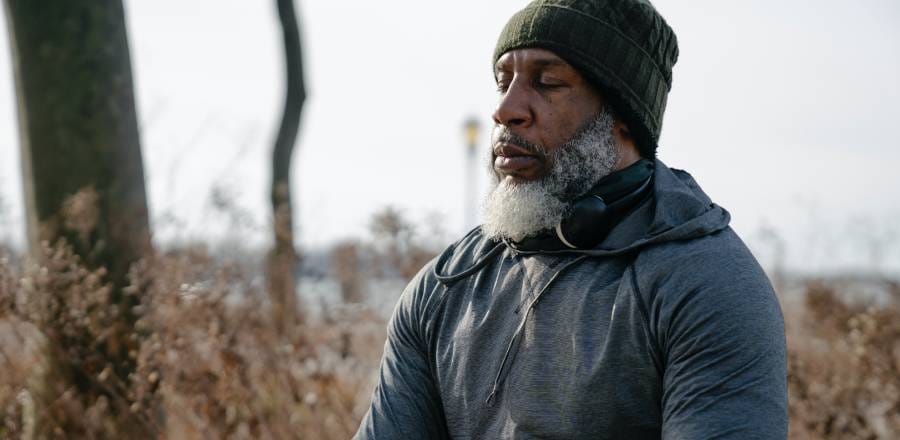Are you feeling stressed or overwhelmed? It’s more important than ever to find ways to relax both our bodies and minds. In this article, we’ll explore different relaxation techniques, environmental factors, and lifestyle changes that can help you achieve a sense of calm and balance.
Table of Contents
Importance of Relaxation
Before we dive into the relaxation techniques, let’s briefly discuss why relaxation is so essential. Chronic stress can have negative impacts on both your physical and mental well-being. By learning to relax, you’ll reduce the harmful effects of stress, boost your mood, improve concentration, and promote overall well-being.
Physical Relaxation Techniques
Incorporating physical relaxation techniques into your routine can help you release tension and find calm. Here are three popular methods:
Deep Breathing
One of the simplest yet most effective ways to relax is through deep breathing. By focusing on your breath, you can calm your nervous system and reduce stress. Try inhaling deeply through your nose, then exhaling slowly through your mouth. Repeat this for several minutes, concentrating solely on your breath.
Progressive Muscle Relaxation
Progressive muscle relaxation is a technique that involves tensing and relaxing different muscle groups. Start with your feet and work your way up to your head, holding each muscle tense for a few seconds before releasing. This practice can help you become more aware of your body and release tension.
Yoga and Stretching
Yoga and stretching are excellent ways to release tension and relax your body. Incorporate gentle poses and stretches into your daily routine, focusing on areas where you hold tension. Practicing yoga regularly can also help improve flexibility and balance.
Mental Relaxation Techniques
Mental relaxation techniques can help you quiet your mind and achieve inner peace. Here are three effective methods:
Meditation
Meditation is a powerful practice that can help you cultivate mindfulness and inner calm. There are various meditation techniques, such as focusing on your breath, repeating a mantra, or practicing loving-kindness. Start with short sessions and gradually increase the duration as you become more comfortable.
Visualization
Visualization involves creating a mental image of a peaceful, calming place or situation. Close your eyes and imagine yourself in this serene environment, engaging all of your senses. This practice can help you escape stress and promote relaxation.
Mindfulness
Mindfulness is the practice of being fully present and aware of your thoughts, feelings, and bodily sensations without judgment. By embracing mindfulness, you can learn to let go of negative thoughts and emotions, reducing stress and promoting relaxation. Start by dedicating a few minutes each day to focus on your breath, or try mindfulness exercises like body scans or mindful eating.
Environmental Factors for Relaxation
Creating a relaxing environment can greatly impact your ability to unwind. Consider these factors:
Comfortable Surroundings
Ensure your space is comfortable and free of distractions. Use soft lighting, cozy furniture, and remove any clutter. By creating a tranquil environment, you’ll encourage relaxation and peace of mind.
Aromatherapy
Aromatherapy involves using essential oils to promote relaxation and well-being. Scents like lavender, chamomile, and ylang-ylang can have calming effects. Use a diffuser, scented candles, or add a few drops of essential oil to your bath to create a soothing atmosphere.
Soundscapes
Relaxing sounds can help you de-stress and unwind. Consider playing soft music, nature sounds, or white noise to create a soothing ambiance.
Lifestyle Changes to Support Relaxation
Adopting certain lifestyle habits can help you maintain a relaxed state of mind. Here are three changes to consider:
Time Management
Effective time management can help reduce stress and promote relaxation. Break down tasks into smaller, manageable steps, prioritize your to-do list, and delegate when possible. By staying organized, you’ll feel more in control and less overwhelmed.
Nutrition and Hydration
What you eat and drink can affect your stress levels and ability to relax. Opt for a well-balanced diet rich in fruits, vegetables, whole grains, and lean proteins. Limit caffeine and alcohol, as they can increase anxiety and disrupt sleep. Staying hydrated is also essential for overall well-being.
Regular Exercise
Exercise is a natural stress reliever and can help improve your mood. Aim for at least 30 minutes of physical activity each day, whether it’s walking, swimming, or dancing. Find an activity you enjoy and make it a regular part of your routine.
Conclusion
Learning how to relax your body and mind is essential for maintaining a healthy, balanced life. By incorporating physical and mental relaxation techniques, creating a calming environment, and making lifestyle changes, you can reduce stress and improve your overall well-being. Remember, self-care is crucial, and finding time to relax should be a priority in your daily routine.
FAQs
- How long should I practice relaxation techniques to see benefits?
Consistency is key when it comes to relaxation techniques. Start with a few minutes each day and gradually increase the duration. You may begin to notice benefits within a few weeks. - Can relaxation techniques help with sleep?
Yes, many relaxation techniques, such as deep breathing, progressive muscle relaxation, and meditation, can improve sleep quality by reducing stress and promoting a calm state of mind. - Are there any risks or side effects to relaxation techniques?
Most relaxation techniques are safe and have minimal side effects. However, if you have any concerns or medical conditions, consult your healthcare provider before starting any new practices. - Can I combine different relaxation techniques?
Absolutely! Combining different techniques can be an effective way to find what works best for you and personalize your relaxation routine. - How do I know if a relaxation technique is working?
Pay attention to your body and mind. If you notice a reduction in stress, improvements in mood, or increased feelings of calm, the technique is likely working for you. Remember, it may take time and consistent practice to see results.





